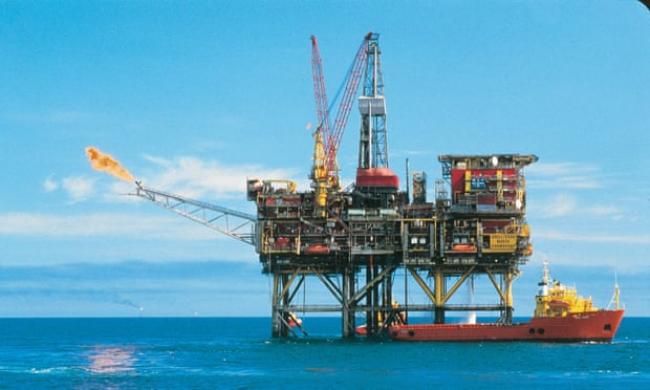Articles Menu

14 Aug 2020
The world’s largest listed oil companies have wiped almost $90bn from the value of their oil and gas assets in the last nine months as the coronavirus pandemic accelerates a global shift away from fossil fuels.
In the last three financial quarters, seven of the largest oil firms have slashed their forecasts for future oil market prices, triggering a wave of downgrades to the value of their oil and gas projects totalling $87bn.
Analysis by the climate finance thinktank Carbon Tracker shows that in the last three month alone, companies including Royal Dutch Shell, BP, Total, Chevron, Repsol, Eni and Equinor have reported downgrades on the value of their assets totalling almost $55bn.
The oil valuation impairments began at the end of last year in response to growing political support for transition from fossil fuels to cleaner energy sources, and they have accelerated as the pandemic has taken its toll on the oil industry.
Lockdowns have triggered the sharpest collapse in demand for fossil fuels in 25 years, causing energy commodity markets to crash to historic lows.
The oil market collapse, which reached its nadir in April, has forced companies to reassess their expectations for prices in the coming years.
BP has cut its oil forecasts by almost a third, to an average of $55 a barrel between 2020 and 2050, while Shell has cut its forecasts from $60 a barrel to an average of $35 a barrel this year, rising to $40 next year, $50 in 2022 and $60 from 2023.
Both companies slashed their shareholder payouts after the revisions triggered a $22.3bn downgrade on Shell’s fossil fuel portfolio and a $13.7bn impairment on BP’s oil and gas assets.
Andrew Grant, Carbon Tracker’s head of oil, gas and mining, said the coronavirus had accelerated an inevitable trend towards lower oil prices – a trend that many climate campaigners have warned will lead to stranded assets and a deepening risk for pension funds that invest in oil firms.
“Covid-19 has certainly done its bit in wiping out value from oil companies’ books, but it’s clear that it has also accelerated a trend of companies changing their longer-term price assumptions to better reflect the realities of the energy transition,” he said.
In the last financial quarter of 2019, the French oil company Total and Spain’s Repsol both pointed to government climate policy as the reason for oil valuation downgrades totalling $6.2bn.
“The fact that major European players are writing down assets with reference to the Paris agreement is a very positive shift,” Grant said. “Setting impairment prices in line with a conservative estimate of future fossil fuel demand based on the Paris agreement can only help to avoid wasted capital and increase companies’ resilience.”
BP revealed its steep asset valuation downgrade and its first dividend cut in a decade alongside an ambitious new plan to shift its energy portfolio from fossil fuels to low-carbon alternatives. By the end of the decade BP expects to produce 40% less oil and gas, and it is increasing its spending on clean energy tenfold, in a move welcomed by green groups and investors alike.
“However, there are laggards,” Grant said. “US oil majors don’t disclose their price assumptions and made little mention of climate change in their quarterly filings. Neither ExxonMobil nor ConocoPhillips have reported any material impairments this year, suggesting management is hanging on to an optimistic view of the oil price.”
Norway’s state oil company, Equinor, has broken ranks from its European peers by sticking to its long-term forecasts for the price of Brent crude at $80 a barrel – “the highest by some way,” Grant said.
“Stubbornly sticking to business-as-usual price forecasts may lead companies to misallocate capital to the detriment of their investors,” he added.
[Top photo: A North Sea oil platform. Photograph: Alamy]